May 19th, 2022 • Music Education
Let’s Celebrate Asian American & Pacific Islander Heritage Month!
The month of May is Asian American & Pacific Islander Month, and we are celebrating with a blog post courtesy of Kai Fritchman, the Omaha Conservatory’s Admissions Manager! Kai interviewed several Omaha area professional musicians who identify as Asian American or Pacific Islander, sharing their inspiring stories and incredible wisdom as career musicians. Keep reading to learn about their musical backgrounds, career paths, the musicians who inspire them and more! (psst: Kai also collected one awesome practice tip from each of them—you can find those at the bottom of this post!)
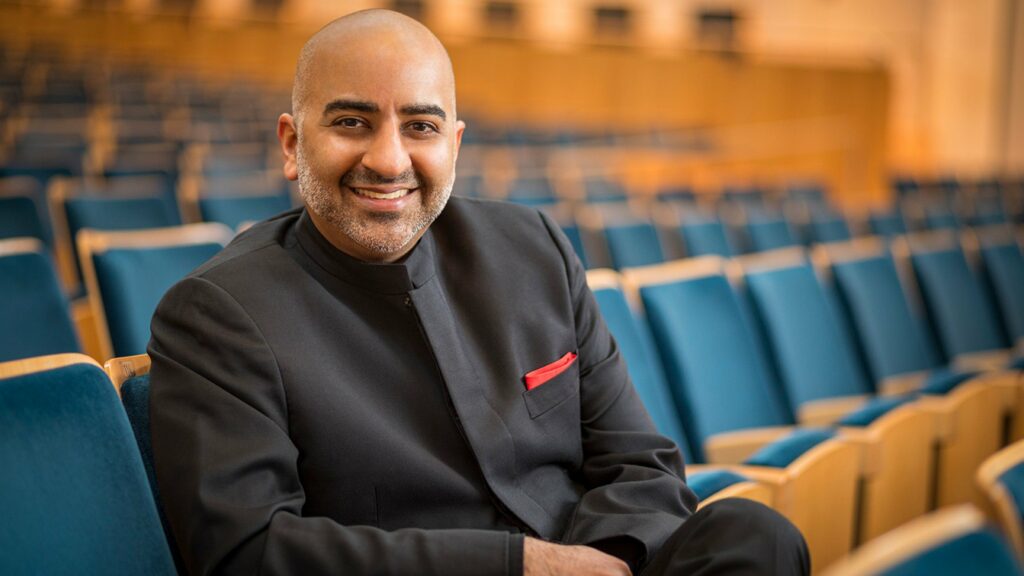
Ankush Kumar Bahl — Music Director, Omaha Symphony
Q: Was there someone who encouraged you to pursue music?
A: From my mother who recognized that I could keep rhythm and signed me up for lessons to everyone who encouraged me to learn violin or french horn or conducting, it takes several people to change your life.
Q: What is your favorite piece to perform?
A: It’s always whatever piece I’m working on at the moment. It takes over my brain and I deepen my relationship with my brain and I always learn new things.
Q: Was there a piece that you struggled with?
A: When I was working my job in a youth orchestra I was assigned a piece that I did not love. What I learned during this experience was that you’re assigned a piece for a reason, even if you don’t understand it at the time. So I worked through the piece and I still didn’t love it, and I put it aside for a time. But time is on your side and the longer you live with a piece the more of an opportunity you have to let your relationship with it deepen. Now that I’ve lived a little more of my life, I’ve come back to that piece and found a deeper connection to it than I did when I was younger.
Q: What is a piece of advice you were given that has stuck with you?
A: Every musician I know is still doing music. Which means that you can make music a part of your life in some form. From playing with friends, the community orchestra or the symphony. We are all musicians.
Q: What is something you would like to share with aspiring musicians?
A: Do whatever it takes to keep it fresh and to stay in love with it. Keep checking in with yourself and make sure you’re loving it.
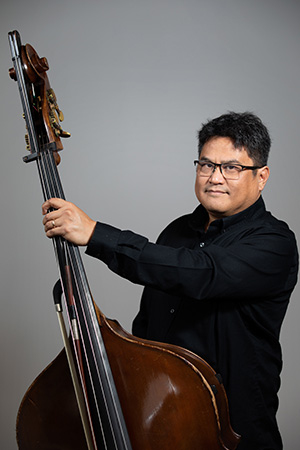
Jeremy Baguyos — Professor of Music Technology, Double Bass & Interdisciplinary Informatics, University of Nebraska-Omaha
Q: How old were you when you started learning your first instrument?
A: I was 9 or 10 years old when I started learning double bass.
Q: What is one of your favorite pieces to perform?
A: Koussevitzky Double Bass Concerto
Q: What is one of your favorite things about your job?
A: Working at UNO allows for people to experiment, even if you might fail. In this way, you can be creative and feel supported.
Q: What is your favorite thing about being a musician?
A: There is a prestige to it. Your identity as a musician is important because you work so hard to learn your instrument, to learn the pieces and to learn to play together.
Q: What is a piece of advice you were given that has stuck with you?
A: Ron McCurdy told me that, “You’re a bass player, but you can’t just do bass. You gotta be able to do something else.” That opened me up to exploring other things like music technology.
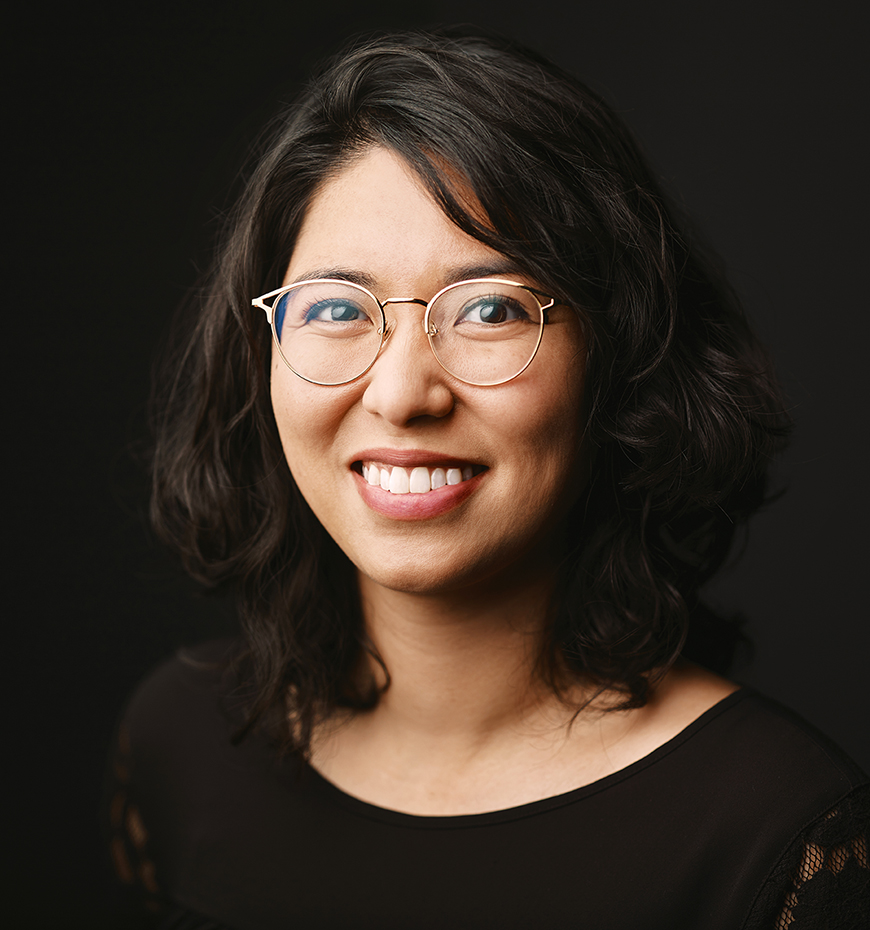
Juliet Yoshida — Violin Artist-Faculty, Omaha Conservatory of Music
Q: Was there someone who encouraged you to pursue music?
A: My dad did music so I saw that lifestyle. Everyone I knew was a musician.
Q: When did you decide that you wanted to be a musician?
A: Sophomore year of high school.
Q: What is a piece that you struggled with?
A: [Mendelssohn.] It was my undergrad audition and I had never played anything that hard at the time. I decided that I was going to do music and I was behind. I had to make a leap.
Q: Who is a performer that inspires you?
A: Yo-Yo Ma. It’s easy for people to become that they don’t have to be nice. He is both a good artist and a good person. Because of that I think everyone has a Yo-Yo Ma story.
Q: Is there a piece that you think everyone should listen to?
A: The Ravel String Quartet.
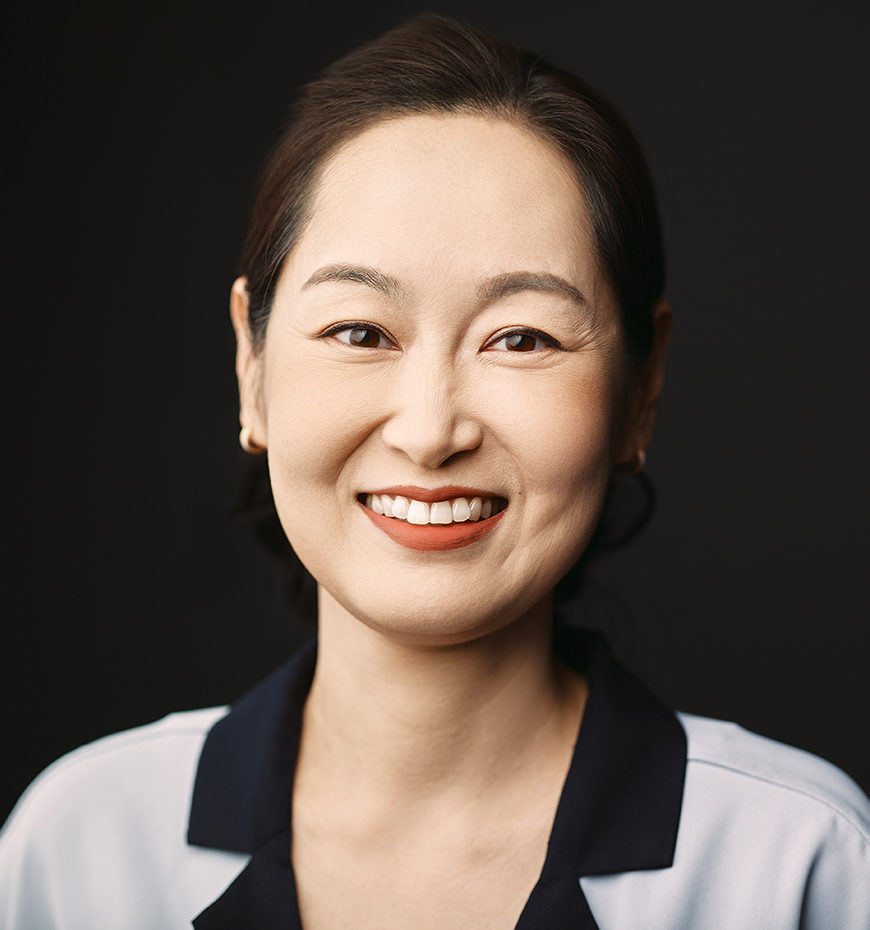
Kyu-Youn Butler — Piano Artist-Faculty, Omaha Conservatory of Music
Q: Was there someone who encouraged you to pursue music?
A: When I first went to college I thought there are so many good pianists in the world that I wouldn’t be that good and I almost quit. But my professor encouraged me to try for one more semester to see what would happen and how I would feel. This semester was a turning point for me. Without it I wouldn’t be where I am today.
Q: Who is a role model you looked up to?
A: My teacher in San Francisco. He was like a father figure to me. He did not have children of his own, so as a student of his I felt like he was looking out for me, especially because I was new to this country.
Q: Do you have a favorite composer?
A: Beethoven.
Q: Who is a performer that inspires you?
A: Michiko Uchida. I liked her style when I was young. She was the only pianist I saw who wasn’t wearing dresses, and I thought she was so stylish. So she caught my attention before she got to the piano. And she was a very good pianist too!
Q: What is a piece of advice that has stuck with you?
A: Listen a lot. I listen to five different pianists playing the same piece because they use different colors and to see what they do differently. This helps me figure out what I want to do. I also do a lot of score reading without listening to see what I can hear. I think it’s important to do both and to find your own relationship with the music.
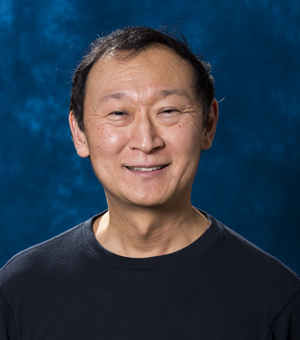
Momoro Ono — Adjunct Assistant Professor of Piano, Creighton University
Q: When did you decide you wanted to be a musician?
A: I was very late in that department. You need to know very early on; you need to be able to play very well in your early teens. It’s similar to how world class athletes are trained. But a musical career is unpredictable. There is no security. I decided when I was a freshman in high school.
Q: Was there a piece that you struggled with?
A: When I was around 11 to 13 I learned all of Chopin’s “Études.” When we work on them we are occupied with the technical challenges. I think there is a greater challenge than what is technically difficult, and those are pieces that are musically difficult. Beethoven’s sonatas are not technically difficult but are musically difficult. Mozart uses notes that are not difficult to learn, but these pieces require a lot of depth that we don’t want to show our progress on them too early. At our best, we’re only beginning to see the light.
Q: What is one of your favorite things about your job?
A: Regardless of what level the student is, when a student has gotten a point, whether big or small, when I see this look of delight and joy on their faces – this expression is the best.
Q: What is a piece of advice you were given that has stuck with you?
A: Enjoy life. You only go through it once.
Q: What is something you would like to share with aspiring musicians?
A: Put everything you have into it. Put as much enthusiasm and hard work into it. Sometimes that seems like it’s contradictory, but they actually work really well together.
Practice Tips
It’s not every day that you get a Practice Tip from a world-class musician—check out their words of wisdom below!
Ankush Kumar Bahl: If [a student] gets something right, they [try to] move on. Instead, they should get it right consistently, like 10 times, before moving on.
Jeremy Baguyos: Learn a piece away from your instrument first. Listen to it. If you can sing it you can play it.
Juliet Yoshida: Use the metronome.
Kyu-Youn Butler: Short practice time is important because you can avoid injuries. Taking a good rest in between is important. It’s the same as building muscles for sports.
Momoro Ono: As a teacher what I say most often–and it doesn’t matter if you are a beginner or more advanced–the #1 thing I say is practice slower.
Looking for some listening inspiration? Check out this playlist of videos, comprised of pieces performed or composed by musicians that identify as Asian American or Pacific Islander.
Testament (from Vishwas) by Reena Esmail
Gliere’s Tarantella, performed by Mikyung Sung & Eloise Kim
“The Fisherman’s Song” by Chen Yi
Beethoven’s Triple Concerto, performed by the Chung Trio
Kishi Bashi’s NPR Tiny Desk Concert
Mitsuko Uchida plays the Sarabande from J.S. Bach’s French Suite
“Roots – Tabibito” performed on the Shamisen, a traditional Japanese Instrument
Variations on Ernst’s “The Last Rose of Summer” performed by Midori
Waltz from Tchaikovsky’s Swan Lake, performed by Zubin Mehta & the Israel Philharmonic Orchestra
